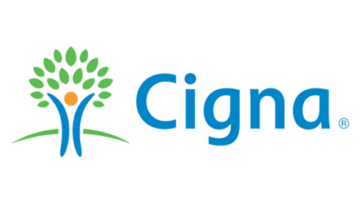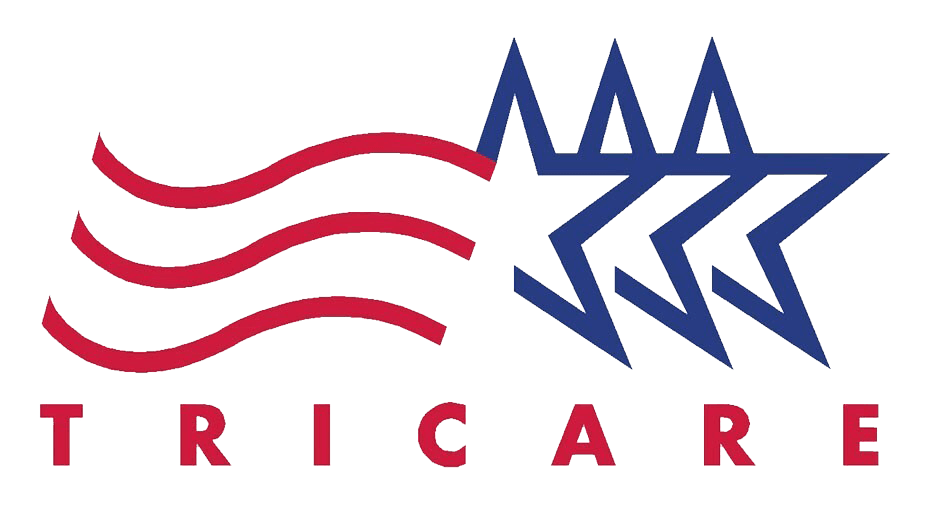Unplugging and Healing from Screen Addiction
In today’s world, technology plays a crucial role in our daily lives, shaping how we interact with each other and our environment. We rely on screens for various purposes, including work, communication, and entertainment. From checking emails on our smartphones to binge-watching shows on our tablets, screens have become essential tools that boost our productivity and connect us to vast information and experiences. However, while technology has simplified many aspects of life, it has also introduced new challenges, particularly screen addiction. This condition involves a compulsive urge to engage with screens—whether smartphones, laptops, tablets, or TVs. If needed, seek rehab for screen addiction.
Screen addiction affects individuals of all ages, leading to negative consequences like reduced productivity, strained relationships, and mental health issues such as anxiety and depression. As more people become attached to their devices, many find it challenging to balance digital interactions with real-world experiences. In this blog post, we will explore the benefits of rehab for screen addiction, highlighting how structured programs can provide support and tools for individuals to unplug and heal. Effective rehab for screen addiction often takes a holistic approach, addressing behavioral patterns linked to excessive screen time and the emotional and psychological factors behind this compulsive behavior. Through therapy, group discussions, and engaging in alternative activities, individuals can rediscover fulfilling experiences beyond their screens, leading to a healthier and more balanced lifestyle.
The Need for Rehab for Screen Addiction
Screen addiction is often underestimated and dismissed as simply a bad habit that can be easily broken. However, many people are unaware that quitting abruptly without proper guidance and support can result in significant withdrawal symptoms, such as anxiety, irritability, and even depression, which may ultimately lead to relapse. This highlights the importance of rehab for screen addiction. Such programs offer a structured and supportive environment designed to help individuals break free from compulsive screen use.
In rehabilitation, participants receive education on the psychological effects of excessive screen time and learn healthier coping strategies. They also engage in therapeutic activities that promote mindfulness and encourage real-world interactions, allowing them to reconnect with their surroundings and establish a more balanced relationship with technology. By addressing the root causes of their addiction, individuals can achieve lasting change and regain control over their lives.
Break the Cycle of Compulsive Screen Use
One of the main benefits of rehab for screen addiction is breaking the cycle of compulsive screen use, which can significantly impact various aspects of an individual’s life. In a rehab setting, individuals are removed from the constant temptation and triggers that lead to excessive screen time, such as notifications and easy access to devices. This environment allows them to focus on their recovery without the distractions of their daily routines. Through structured programs and support from professionals, participants can reset their habits, gain insights into their screen usage patterns, and establish a healthier relationship with screens. Additionally, rehab provides opportunities for engaging in alternative activities, fostering social connections, and developing coping strategies that promote a balanced lifestyle beyond screens.
Address Underlying Issues
Screen addiction often masks underlying issues such as anxiety, depression, or trauma that individuals may not fully acknowledge. This addiction can serve as a coping mechanism, allowing them to escape from their emotional pain or difficult life circumstances. In rehabilitation, individuals gain access to comprehensive therapy and counseling that aim to address these deeper issues. They work closely with trained professionals who guide them through the therapeutic process, helping them to uncover the root causes of their addiction. Additionally, they are taught healthy coping mechanisms and strategies to manage stress and emotions without resorting to screens. By effectively addressing these underlying problems, individuals can pave the way toward sustainable long-term recovery and a healthier relationship with technology.
Develop Healthy Coping Mechanisms
In the absence of screens that constantly stimulate and distract, individuals in rehab are encouraged to seek healthier and more fulfilling ways to address boredom, stress, and a range of emotions. This environment introduces activities like exercise, art therapy, and mindfulness practices, which serve as outlets for expression and avenues for both physical and mental growth. For example, regular physical exercise can elevate endorphin levels, helping to alleviate anxiety and depression.
Art therapy provides a creative space for individuals to explore their emotions, allowing them to process their experiences safely. Mindfulness practices, including meditation and deep breathing exercises, are taught to foster a sense of presence and tranquility. These new coping mechanisms are not merely temporary fixes; they can be easily incorporated into daily life even after rehab, supporting long-term emotional well-being and resilience.
Reconnect with the Real World
Excessive screen time can result in social isolation and a disconnection from reality, as individuals often become more engaged in virtual interactions than in face-to-face relationships. This disconnection may lead to feelings of loneliness and impede the development of vital social skills. In rehabilitation settings, individuals have the unique opportunity to step away from their screens and cultivate meaningful connections in a supportive environment. Such interactions not only foster camaraderie but also create a safe space for sharing experiences and emotions. Participating in group activities and discussions enables participants to hone their social skills, rebuild their confidence, and ultimately reconnect with the real world, paving the way for healthier relationships and a more balanced lifestyle.
Learn Healthy Technology Use
Completely avoiding screens may not be a realistic solution, as technology plays a vital role in both our personal and professional lives. Instead, rehabilitation programs focus on teaching individuals how to engage with technology in a healthy and balanced manner. Participants learn essential strategies that include setting clear boundaries around their device usage, limiting screen time to prevent burnout, and utilizing apps that effectively track screen usage to promote mindfulness. These approaches not only help individuals develop a better relationship with their devices but also encourage healthier habits that can lead to improved mental well-being and productivity in daily life. By fostering this balanced approach, individuals can enjoy the benefits of technology while minimizing its potential negative impact.
Gain Professional Support
Rehab for screen addiction offer vital professional assistance from highly trained therapists and counselors specializing in addiction treatment. These experts bring extensive knowledge and experience, enabling them to design personalized treatment plans that cater to each individual’s unique circumstances and needs. They closely monitor progress while employing evidence-based practices proven effective in the recovery process. Furthermore, they provide emotional support and guidance, helping individuals navigate the challenges they encounter and empowering them to cultivate healthier coping strategies on their path to lasting sobriety. This comprehensive approach is essential for promoting a successful and sustainable recovery.
Build a Support Network
Rehabilitation offers a valuable opportunity to cultivate a support network of peers facing similar challenges. These connections can be immensely beneficial, as they enable individuals to share their experiences, obstacles, and triumphs. Group therapy sessions, support groups, and communal activities foster a sense of belonging and solidarity, reinforcing that no one is alone on their recovery journey. Engaging with others who understand their struggles can boost motivation, provide diverse perspectives, and create a safe space for open communication, all of which contribute to a more successful and rewarding rehabilitation experience.

Improve Mental Health
Screen addiction can profoundly affect mental health, leading to increased anxiety, depression, and stress. As people grow more reliant on their devices for entertainment, social engagement, and information, they may withdraw from meaningful real-life connections and experiences. Rehabilitation provides a supportive and safe environment where individuals can comprehensively address these mental health challenges. During their stay, they collaborate closely with professionals to uncover the underlying issues contributing to their addiction. Additionally, they develop practical strategies and coping mechanisms to manage these difficulties, empowering them to navigate life without relying on screens for comfort or distraction. By fostering healthier habits and enhancing self-awareness, rehabilitation plays a vital role in reclaiming one’s mental well-being.
Enhance Physical Health
Excessive screen time has become increasingly prevalent in our digital age, often leading to a sedentary lifestyle, poor posture, and eye strain. Spending prolonged hours in front of screens can result in various health issues, including back pain, fatigue, and difficulties with focus and eye health. To address these challenges, rehabilitation programs have been established that incorporate a range of physical activities and exercises aimed at promoting overall well-being. These programs typically include strength training, stretching, and mobility exercises designed to counteract the negative physical effects of screen addiction. They encourage individuals to move more, improve their posture, and implement eye care strategies to alleviate strain. By engaging in these rehabilitation programs, participants can work towards achieving a healthier balance in their screen time habits, ultimately enhancing both their physical and mental health.
Foster Mindfulness
Mindfulness practices, such as meditation and yoga, are increasingly being integrated into rehabilitation programs for individuals facing various challenges, including substance use and behavioral issues. These techniques are essential in enhancing self-awareness, allowing individuals to gain deeper insights into their thoughts and behaviors and understand their impulses more thoroughly. By fostering mindfulness, individuals can identify the triggers that lead to impulsive screen use, empowering them to develop healthier coping mechanisms and strategies for managing their time and attention. This holistic approach not only supports recovery but also promotes overall well-being and emotional regulation.
Encourage Personal Growth
Rehabilitation goes beyond merely overcoming addiction; it presents a valuable opportunity for personal growth and transformation. Throughout this journey, individuals can delve into new hobbies that spark their creativity, cultivate skills that enhance their capabilities, and rediscover passions that have long been overshadowed by their struggles. Engaging in activities such as art, music, sports, or outdoor adventures fosters a sense of fulfillment and connection to the world—free from the distractions of screens. By prioritizing self-discovery and personal development, rehab serves as a vital stepping stone toward a healthier, more balanced lifestyle.
Provide Long-Term Strategies
Rehabilitation programs are designed to equip individuals with essential long-term strategies for cultivating and maintaining a healthy relationship with technology long after they leave the facility. These programs typically include thorough training on identifying triggers that may lead to excessive technology use, along with practical relapse prevention techniques such as mindfulness practices and coping strategies. Moreover, ongoing support through aftercare initiatives—encompassing regular check-ins, group therapy sessions, and access to online resources—plays a vital role in ensuring sustained recovery and promoting a balanced lifestyle. By fostering a supportive community, individuals are encouraged to share their experiences and challenges, which further enhances their ability to navigate the digital world responsibly.
Offer Family Support
Screen addiction affects not only the individual grappling with the problem but also their loved ones, creating a ripple effect that can strain relationships. This addiction often results in diminished quality time, communication breakdowns, and emotional distance within families. In response, many rehabilitation programs now incorporate family therapy and educational resources specifically designed to help families navigate the complexities of screen addiction. These programs aim to equip family members with the necessary tools to support their loved one’s recovery journey, fostering healthier dynamics and addressing any relational wounds that may have arisen. By prioritizing open communication and empathy, families can collaboratively heal and strengthen their connections.
Promote Overall Well-Being
The ultimate aim of rehabilitation for screen addiction is to enhance overall well-being and promote a healthier lifestyle. By liberating themselves from the confines of screen addiction, individuals can reclaim control over their time and attention, enabling them to engage more meaningfully with their surroundings. This transformative journey allows them to lead more balanced and fulfilling lives, nurturing deeper connections with family and friends while rediscovering hobbies and activities that may have fallen by the wayside. By prioritizing their mental and physical health, those recovering from screen addiction can cultivate a sense of purpose and enrich their daily experiences.
Conclusion
Rehab for screen addiction offers individuals the necessary tools and support to unplug from screens and heal from their addictive behaviors. It provides a holistic approach that addresses both the physical and psychological aspects of addiction. By breaking the cycle of compulsive screen use and addressing underlying issues, individuals can establish a healthier relationship with screens and improve their overall well-being. If you or someone you know is struggling with screen addiction, do not hesitate to seek help by calling 1 (512) 831-7682 or clicking Omega Recovery. Remember, it is never too late to unplug and heal from screen addiction.
Take the first step towards a healthier lifestyle and reach out for support today. Your mind, body, and relationships will thank you in the long run. Rehabilitation for screen addiction is not just about quitting screens; it’s about learning to live without being constantly plugged in. It’s about finding balance and prioritizing our mental and physical health. Let’s unplug, heal, and reclaim our lives from the grips of screen addiction. Your future self will thank you for it. Stay strong and stay unplugged!







